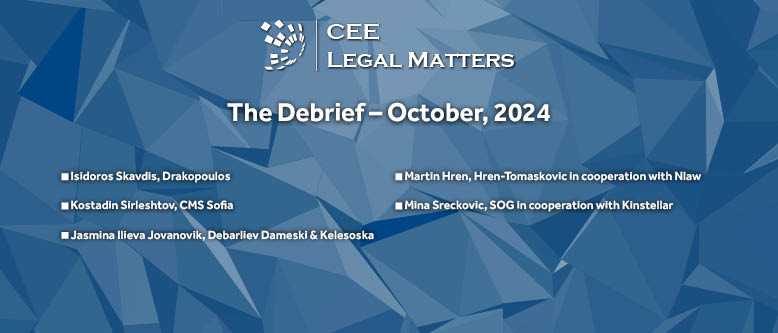The topic of genetically modified organisms (GMOs) has lately become an actual and increasingly important aspect in Moldovan law. Until recently scarcely regulated, the activity involving GMOs was subject to significant legal loopholes. This led to the inherent risk pertaining to GMOs being difficult to control, especially with agriculture playing an important role in the national economy.
Turkiye: New Regulation Draft on Promotional Activities
On May 28, 2024, the Turkish Medicines and Medical Devices Agency (Agency) took a significant step in regulating the healthcare industry by unveiling the draft Regulation on Promotional Activities of Medicinal Products for Human Use and Foods for Special Medical Purposes (Draft). This comprehensive Draft aims to address various aspects of promotional activities, ensuring that they are conducted in a manner that upholds scientific integrity and prioritizes patient safety.
Renewable Energy in Turkiye
It is unavoidable that the increasing population, traffic, industrialization, used wastes, etc. pollute nature and the environment. We, as human beings, should reduce environmental pollution for future generations. This is where alternative energy production comes into play.
Data Protection in Turkiye
The Data protection is an increasingly important issue in today’s digital world. The rapid development of information technologies has made it easier for state institutions and private sector organizations to access thousands of personal data daily. This situation has increased the processing and transfer of personal data and has led to the necessity of protection.
The Debrief: October, 2024
In The Debrief, our Practice Leaders across CEE share updates on recent and upcoming legislation, consider the impact of recent court decisions, showcase landmark projects, and keep our readers apprised of the latest developments impacting their respective practice areas.
Keeping Things In-House: An Interview with Radu Culic of Net-Connect Group
With a focus on keeping as much of the legal work in-house, Net-Connect Group Head of Regulatory Affairs Radu Culic discusses best practices for managing in-house legal budgets.
Budgeting Plan B: An Interview with Florina Mariana Homeghiu of Photon Energy Group
Photon Energy Group’s Deputy Group Legal Counsel Florina Mariana Homeghiu discusses her approach to managing legal budgets, including trends in costs and effective cost-cutting strategies.
A Streamlined Budget for a Fast-Paced Sector: An Interview with Gergely Szekely of Heureka Group
Heureka Group CEE Head of Legal Gergely Szekely provides insights on his in-house legal team’s budget trends and management, considering the challenges inherent in the dynamic e-commerce sector.
Reflecting on Budgets
Managing budgets in big companies could be seen at the same time as art and as a challenge. And art should never be under pressure.
Managing Budgets Best Practices
In recent years, in-house legal teams have faced growing pressure to manage budgets more effectively while maintaining high standards of service. In this article, I will share best practices for managing legal budgets, and address trends, challenges, and strategies that have shaped the budgeting landscape for in-house legal teams.
Best Practices for Working with External Counsel on M&A Projects
M&A transactions involve numerous legal, financial, and operational challenges. As in-house counsel, we are responsible for businesses’ right risk allocation and risk mitigation, while we bear significant responsibility in ensuring the deal progresses smoothly and can be closed successfully. Given this high responsibility, effective collaboration with external counsel is crucial to navigating these high-stakes deals and ensuring a smooth and successful transaction. Drawing from my experience, I will share best practices for selecting, collaborating with, and managing external counsel during M&A projects to achieve optimal outcomes and make your life easier in the post-closing and integration stages.
Communication + Trust = Recipe for Success: An Interview with Kameliya Naydenova of Mondelez International
Mondelez International Senior Counsel Competition Law Compliance Kameliya Naydenova emphasizes the importance of communication, trust, and practical expertise when working with external legal counsel.
A Checklist for Working with External Counsel
Working with external counsel can be a crucial aspect of managing legal issues, especially for companies that need specialized expertise or extra support for their in-house legal team. To make the most of these collaborations, it’s important to follow some best practices that ensure efficiency, alignment with business goals, and cost-effectiveness. Here’s my straightforward guide to help work effectively with external legal experts.
Smart Outsourcing: An Interview with Joanna Przybyl of Revetas Capital
Revetas Capital General Counsel Joanna Przybyl reveals her strategies for mastering relationships with external counsel, from choosing the right firms to keeping budgets on track.
Old Faithful: An Interview with Dawid Radziszewski of Selvita
From staying loyal to specific lawyers irrespective of the brand they work under to focusing on fixed fees, Selvita General Counsel and Executive Management Board Member Dawid Radziszewski shares his best practices in terms of working with external counsel.
Picking and Working with the Right Firefighter: An Interview with Tamara Mohoric Selak of Zito
From relying on chemistry to counting on reputation being representative, Zito Director of Legal Affairs and General Services Tamara Mohoric Selak talks about how she picks her external “firefighters” and how she nurtures long-term collaborations with them.
The Right Pick: An Interview with Elena Bosnidou of INSS
INSS Legal Director Elena Bosnidou shares her tips and tricks on selecting and instructing external counsel.
Mastering the Game: Best Practices for Working with External Counsel
Bringing in external counsel can flip legal headaches into big wins, protecting your interests and pushing your goals forward. But how do you make sure your partnership with legal experts goes beyond just getting the job done? The magic happens when you master working with external counsel – mixing careful planning with lively communication to reach new heights of legal success.

































